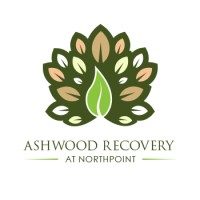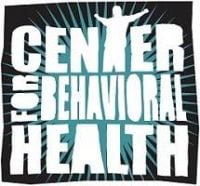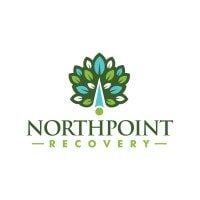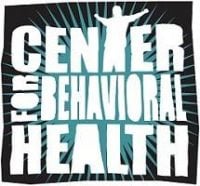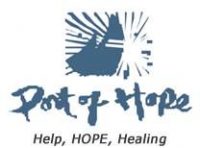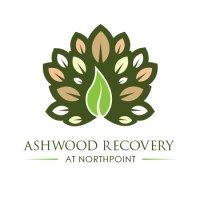Ashwood Recovery at Northpoint - Boise
Drug Rehab Center in Boise, Idaho
Ashwood Recovery at Northpoint - Boise is an accredited drug rehab facility that provides various levels of care for individuals with alcohol addiction, opioid addiction, eating disorders, and other substance abuse problems, and accepts most private health insurance plans.
About Ashwood Recovery at Northpoint - Boise in Idaho
Ashwood Recovery at Northpoint in Boise, Idaho, offers a dual-diagnosis addiction rehab tailored for both adults and teens. Focused on providing evidence-based treatment, this facility uniquely combines in-network cooperation with major providers to make care more accessible. With a continuum of care that addresses both addictions and co-occurring disorders, Ashwood prioritizes a holistic approach to recovery through various treatment levels.
- Flexible treatment schedules in their Intensive Outpatient Program (IOP) cater to the unique needs of each client, ranging from 9-15 hours per week.
- The Partial Hospitalization Program (PHP) allows individuals to engage in intensive therapy while maintaining the ability to return home, providing a balance between treatment intensity and personal life.
- Following primary treatment phases, Ashwood Recovery emphasizes the importance of aftercare to support long-term sobriety, offering regular check-ins and group sessions.
Accredited by LegitScript and the Joint Commission on Accreditation of Hospital Organizations (JCAHO), Ashwood Recovery at Northpoint boasts a commitment to high-quality care. Its experienced team provides comprehensive services, from detoxification to aftercare, ensuring a supportive environment for recovery.
The facility addresses a range of issues, including drug addiction, alcoholism, dual diagnoses, and co-occurring mental health disorders. Treatment methods span from medical detox to intensive outpatient, partial hospitalization, and post-treatment support, incorporating cognitive-behavioral therapy, group therapy, and family therapy to foster recovery.
Genders
Ages
Modality
Additional
Accreditations

LegitScript

JCAHO
Conditions and Issues Treated
With so many people addicted to opioids, we need to help those who want to quit. The cycle begins when opioid addicts take opioids for a painful injury. When someone starts taking their medication differently or in excess, it means they’re addicted and at risk of overdosing.
In , detoxing from these types of treatments is the most effective way to beat this. Most facilities begin with medical assistance and then provide counseling services; rehabilitation follows after successful treatment.
Dual diagnosis refers to someone who has both an addiction and a mental or emotional illness. Dual diagnosis treatment includes therapy for both issues simultaneously, allowing for effective treatment of either.
Sometimes people with addiction disorders also have co-occurring disorders like depression, anxiety, bipolar disorder, etc. These require specialized treatment programs that address both drug and alcohol addiction as well as psychiatric illnesses. Some rehabilitation facilities provide patients with co-occurring disorders a program with highly integrated services and a clean, distraction-free environment.
Levels of Care Offered
This center offers a variety of custom treatment tailored to individual recovery. Currently available are Aftercare Support, Drug Rehab, Dual-Diagnosis, Intensive Outpatient, Intervention, Outpatient, Partial-Hospitalization, with additional therapies available as listed below.
An intensive outpatient program (IOP) is effective for drug rehab, but it can take six months to several years to complete. It’s the most popular type of drug rehab program in the United States. One example of a successful IOP success story is actor and comedian Chris Rock, sober since 1990.
An IOP allows participants to spend nights at home while attending meetings throughout the day. It’s a good way for drug addicts to make a recovery plan in an outpatient setting while still supporting their loved ones.
Alcohol or drug addiction, or co-occurring disorders, are treated in an outpatient program. The patient must attend therapy and other programs at the facility but can return home each night.
Outpatient treatment allows recovering addicts to live at home while receiving addiction treatment. Outpatients can attend group sessions for a few hours per week. Outpatients may also continue to work full time and study/attend school without interruption if they choose.
A popular way of getting drug treatment is through a Partial Hospitalization Program. These programs are short and intensive, allowing for more freedom in family visits. Patients can check in with the program anywhere from 18 to 30 hours per week but only sleep at home at night. The program may last anywhere from one to six months.
Intervention services are often the final safety net for individuals struggling with addiction. The process of an intervention starts when family or friends get together to talk about how they think their loved one’s life has been impacted because of addictive behaviors and why treatment is needed for them to move forward into a healthy future. The discussion includes information on what different types of treatments will do, just in case your loved ones agree that this might be necessary at some point during the conversation.
The accomplishment of completing a drug or alcohol treatment program is just the first step. Once that is complete, aftercare support comes into play. This includes helping people adjust to life without substances outside of guidelines with assistance like getting sober living accommodations and career counseling and AA/NA programs for those who are struggling between sobriety or want continued help in maintaining it once they have completed their initial rehabilitation at an addiction facility.
Aftercare comprises services that help recovering addicts readjust to normal day-to-day activities while working on specific issues. These problems include psychiatric issues, family problems caused by substance abuse, continuing education pursuits if desired during rehab, etc. These can last up to one year+ depending on what’s needed most urgently upon completion of earlier stages.
Therapies & Programs
Different people react differently to various treatment options. Some drug rehabilitation centers offer individualized treatment that caters to the specific needs of a drug addict. The best treatment option varies on an individual depending on the type of drug abused, life history, medical condition of the person, social circumstances, and the environment they live in now.
When a person enters drug rehab, they usually have anti-drug associations such as withdrawal symptoms, stress, cravings, etc. The first step of drug rehab is to detoxify the body from any residual substances in it. Drug rehabilitation centers usually employ trained medical professionals to help in this process. Usually, the initial detoxification lasts for five days, where the person is monitored under close supervision.
Family therapy sessions typically involve the addict and their family members. During these sessions, a therapist will work with everyone involved to help them understand addiction and find healthy ways of coping without substance abuse.
Some addicts might feel embarrassed about their substance abuse problems. By encouraging family members to attend these sessions, therapists can show addicts that they’re not alone in dealing with addiction. Therapists can also work with family members to help them understand addiction and learn how to offer support and encouragement to their loved one as they deal with substance abuse issues.
Attending group therapy at Ashwood Recovery at Northpoint - Boise in , is a useful way for those seeking sobriety to realize they aren’t the only one going through it.
This is when a group of people on different recovery phases get together and talk about what they’re going through, their triggers, successes, and failures. This can include alternative types of therapies too! Group therapy may occur on an outpatient or inpatient basis with groups that have no pre-existing relationships outside the session, unlike support groups where everyone already knows each other beforehand.
Trauma therapy is a form of therapy used to help people process and understand past traumas. This can help struggling addicts, as many people turn to drugs or alcohol to mask the pain of their past. Trauma therapy can be done in several ways, such as through visualization, discussion, and writing down thoughts and feelings. The goal is to help the individual understand why they are having problems coping with certain situations and changing how they think and react to things. This is often done in tandem with other therapies to treat the underlying issues associated with addiction.
The idea behind trauma therapy is that while some people can experience traumatic events and not have lasting psychiatric symptoms, many others will. In these cases, memories get hidden from consciousness but continue to influence how the person processes and copes with things in their life. They may avoid situations that resemble what happened or become suddenly angry or irritated to a situation that reminds them of a past event. With the help of a therapist, people can go back over memories and experiences. This helps them understand why they are having problems coping with certain situations and changing how they think and react to things.
This type of cognitive-behavioral therapy helps people understand how their thoughts, behaviors, and feelings are interconnected. It can help patients with borderline personality disorder gain control over their actions and stop self-harming thoughts and attempts.
Cognitive Behavioral Therapy is a type of psychotherapy that helps people address the thoughts and behaviors that may have led to their addiction. It also helps change negative thoughts into positive ones and promotes healthy communication between addicts and those around them. CBT is an efficient treatment for individuals suffering from all sorts of addictions.
Cognitive Behavioral Therapy (CBT) focuses on the underlying thoughts and behaviors that caused the problem of addiction in the first place and may cause a relapse. Negative feelings are common in drug abuse disorders, but they can lead to co-occurring disorders if not recognized. CBT involves strategies that help to change the behavior pattern by restructuring negative thoughts into positive ones. It helps to remove these feelings, and it provides long-term benefits. Also, CBT promotes self-awareness, self-control and can be administered as a mono-therapy or as part of combination therapy.
Eye Movement Desensitization and Reprocessing (EMDR) is a treatment modality used with patients suffering from post-traumatic stress disorder (PTSD) or drug and alcohol cravings. EMDR is considered to be a form of cognitive-behavioral therapy (CBT) and exposure therapy. It is believed to help patients reprocess their memories, thoughts, and emotions to heal from the trauma of their experience.
Patient Experience
Experiential Therapy at Ashwood Recovery at Northpoint - Boise
Experiential therapy is a type of therapeutic approach that focuses on having patients work through problems, issues, or emotions by engaging directly in some real experience. It occurs face-to-face with a therapist who helps these people to explore their feelings first hand. The hope is that when this happens, the patient will feel driven to turn away from their destructive behavior and instead take up positive behaviors or coping mechanisms. Direct experience methods, role play, psychodrama, interpersonal and social learning are a few different forms of experiential therapy.
Fitness Therapy
To recover from addiction, one needs to recover the body and mind. Addiction can harm your health in many ways. Learning how to take care of yourself includes physical fitness. Exercise releases feel-good hormones and further contributes to positive self-esteem. Self-discipline can be practiced through an exercise regimen as you learn how to take care of yourself. Studies have shown that exercise increases abstinence rates, ease withdrawal symptoms and improve depressive symptoms for those in Boise, ID.
Payment Options Accepted
For specific insurance or payment methods please contact us.
Is your insurance accepted?
Ask an expert, call (888) 674-0062
Ashwood Recovery at Northpoint Associated Centers
Discover treatment facilities under the same provider.
No items foundLearn More About Ashwood Recovery at Northpoint Centers
Additional Details
Specifics, location, and helpful extra information.
Boise, Idaho 83704 Phone Number(208) 900-2242 Meta DetailsUpdated April 15, 2024
Staff Verified
Is Ashwood Recovery at Northpoint – Boise a LegitScript Verified Treatment Facility?
According to our most recent records, we have found this center to be LegitScript verified.
Ashwood Recovery at Northpoint - Boise Patient Reviews
There are no reviews yet. Be the first one to write one.
Boise, Idaho Addiction Information
In 2010, Idaho ranked amongst the top ten states of substance abuse in several categories. Alcohol dependence and abuse pose a major problem throughout the state, especially among minors between the ages of 12 and 17 years old. Opioids, like everywhere else in the nation, are also responsible for many substance abuse problems in the Gem State.
The severity of drug addiction in Boise, ID, is considered to be a serious problem. According to statistics, about 23% of people in Boise, have ID and abuse drugs. In 2017, 1 in 10 high school students reported using an illicit drug other than marijuana. Treatment options vary in terms of length, intensity, and cost, so it is important to do your research to find the best fit for your needs.
Treatment in Nearby Cities
- Holbrook, ID (209.4 mi.)
- Arco, ID (149.3 mi.)
- Meridian, ID (5.5 mi.)
- Lava Hot Springs, ID (226.2 mi.)
- Mountain Home, ID (44.5 mi.)
Centers near Ashwood Recovery at Northpoint - Boise
The facility name, logo and brand are the property and registered trademarks of Ashwood Recovery at Northpoint - Boise, and are being used for identification and informational purposes only. Use of these names, logos and brands shall not imply endorsement. RehabNow.org is not affiliated with or sponsored by Ashwood Recovery at Northpoint - Boise.
